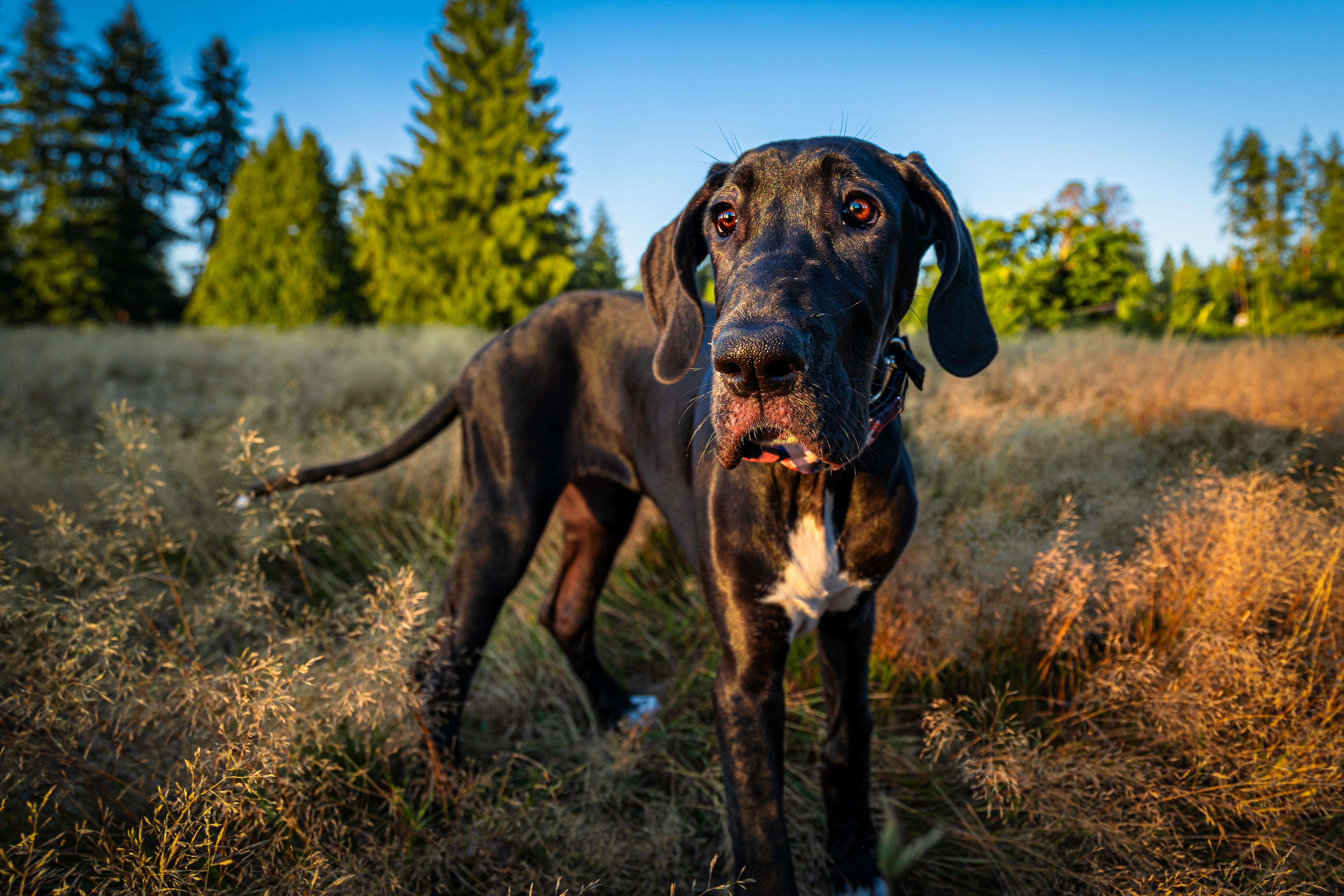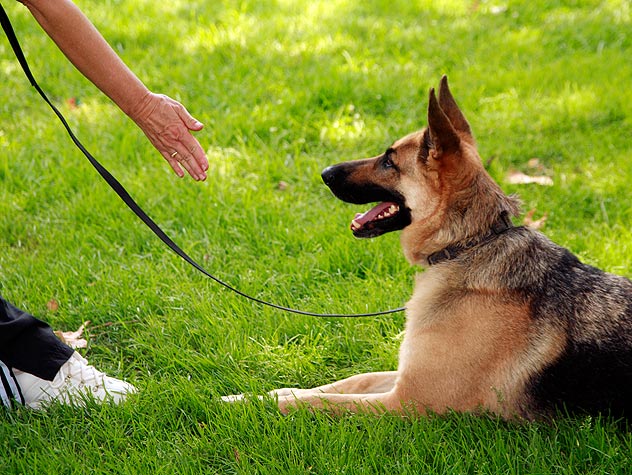Great Dane
Once renowned for guarding estates and pulling carriages, the Great Dane has evolved into a beloved family companion. Known as gentle giants, these affectionate and loving dogs thrive on human interaction. While their ancestors were bred for boar hunting, today's Danes prefer playful romps to the wild chase.
To fully appreciate a Great Dane, owners should have ample space and time to devote to their towering friend. These dogs are not easily portable and require a home environment where they can comfortably move around. Despite their imposing size, Great Danes often possess a lapdog mentality, making them both endearing and a pinch challenging, too.
Breed characteristics carousel
Learn More
Need to Know
- Dogs best for experienced owners
- Extra training is helpful
- Enjoys active walks
- Giant dog
- Some drool
- Requires frequent grooming
- Quiet dog, but may be physically protective/suspicious of visitors
- Could have issues with unknown dogs but gets along with familiar dogs
- May need additional training to live with other pets
- May need additional supervision to live with children
- Needs a large yard, in suburban or rural areas
- AKC Registered Breed

Personality
Great Danes are deeply affectionate and incredibly loyal. While their protective nature makes them excellent watchdogs, this instinct can sometimes lead to territorial behavior towards unfamiliar dogs. Early socialization in Great Dane puppies and obedience training are essential for shaping a well-adjusted dog.
Contrary to their name, the Great Dane dog’s roots lie in Germany, where they were once known as the German Mastiff or Deutsche Dogge. Echoes of their ancestry can be traced back to ancient times, revealing formidable ancestors far bulkier than today's elegant giants.
It wasn't until the 19th century that the breed we recognize today emerged. A transformation occurred, sculpting them into taller, more slender figures—a shift possibly influenced by the addition of Greyhound or other large hound bloodlines. Their deep, resonant bark might startle, but it’s a bluff; the Great Dane is far more interested in companionship than confrontation.
A Great Dane needs as much space as its name suggests—think spacious cars, sprawling homes, and expansive yards. They have hearty appetites and an extended puppyhood, so owning a Dane is a substantial commitment. Their size can amplify even minor behavioral issues, so consistent training is important.
These dogs enjoy lengthy walks and outdoor activities, however, they are equally as happy lazing around for some R&R.
Bigger is better in a Great Dane’s world. A spacious home will give them all of their creature comforts.
Frequent brushing is typically sufficient to keep their coat healthy and lustrous.
Given their imposing size, Great Danes require consistent training to ensure they are well-behaved companions. Mastering leash walking and reliable recall is crucial for their safety and the comfort of those around them. Their presence can be intimidating to others which makes socialization and obedience training essential.
The Great Dane breed makes an excellent family pet due to their temperament and affectionate nature, but they are strong. If you have small children or elderly family members, they might not be the best fit based on size alone.
The cost of a Great Dane from a breeder is significantly more than the cost of adopting one from a local shelter or rescue. The adoption fee usually covers additional items such as spaying or neutering, vaccines, and microchipping.

Learn more about feeding and caring for your Great Dane on Purina.
Did You Know?
- The Great Dane holds the record for being the tallest dog breed in the world.
- They are bred for docility.
- Scooby-Doo is a Great Dane!


